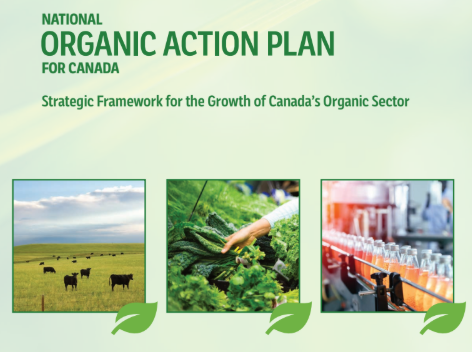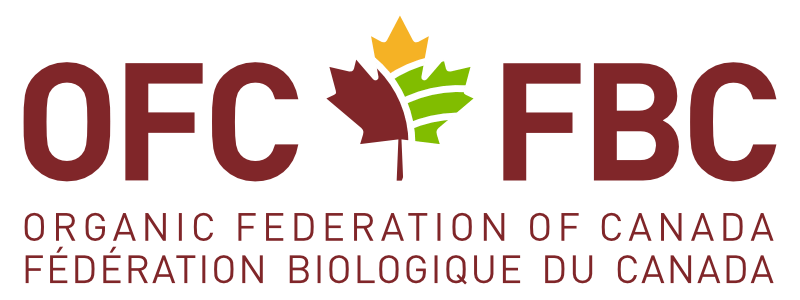New Organic Action Plan
charts course to grow Canada’s organic food and farming sector
and strengthen competitiveness
October 29, 2025
The Canadian Organic Alliance, including the Canada Organic Trade Association, Canadian Organic Growers and the Organic Federation of Canada, is thrilled to announce the launch of a landmark Organic Action Plan that calls on governments to adopt a coordinated strategy to unlock Canada’s organic sector’s growth potential, strengthen competitiveness, and build a resilient domestic supply chain that can meet rising consumer demand.
Organic food and farming are powerful economic and policy tools that can advance Canada’s goals for growth, trade, and environmental performance, yet Canada currently has no strategy to realize their full potential.
The Canadian organic market reached $9.75 billion in 2024, growing more than eight percent since 2023, making it the fifth largest in the world in a global market now worth more than $200 billion. However, Canada is not keeping pace: domestic production has stalled, imports are rising, and Canadian processors are struggling to source Canadian organic ingredients. Meanwhile, Canada’s competitors have recognized the opportunity and adopted organic policies and programs, with the United States spending eight times more per acre per year and the European Union spending 200 times more.
The Organic Action Plan identifies the actions needed to strengthen and expand organic production and markets in Canada. Developed collaboratively by the three organizations with broad input from the sector, the plan proposes a public–private approach with shared commitments from industry and government to drive growth, investment, and coordination across jurisdictions.

The Organic Action Plan recommends action under three pillars to build a stronger, more competitive organic sector:
- Accelerate growth and innovation in organic production – Expand research, training and transition supports to boost productivity and domestic organic supply.
- Grow organic markets and demand – Invest in processing capacity, regional supply chains and market development at home and abroad.
- Strengthen policy, regulatory and data infrastructure for organic – Create a coordinated national framework, modernize regulations and improve access to reliable organic data.
The Plan provides the foundation for an organic policy framework and a guide for strategic sector action. Join us in implementing the plan to achieve lasting benefits for farmers, businesses, consumers, and the environment.

